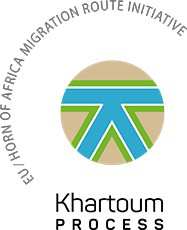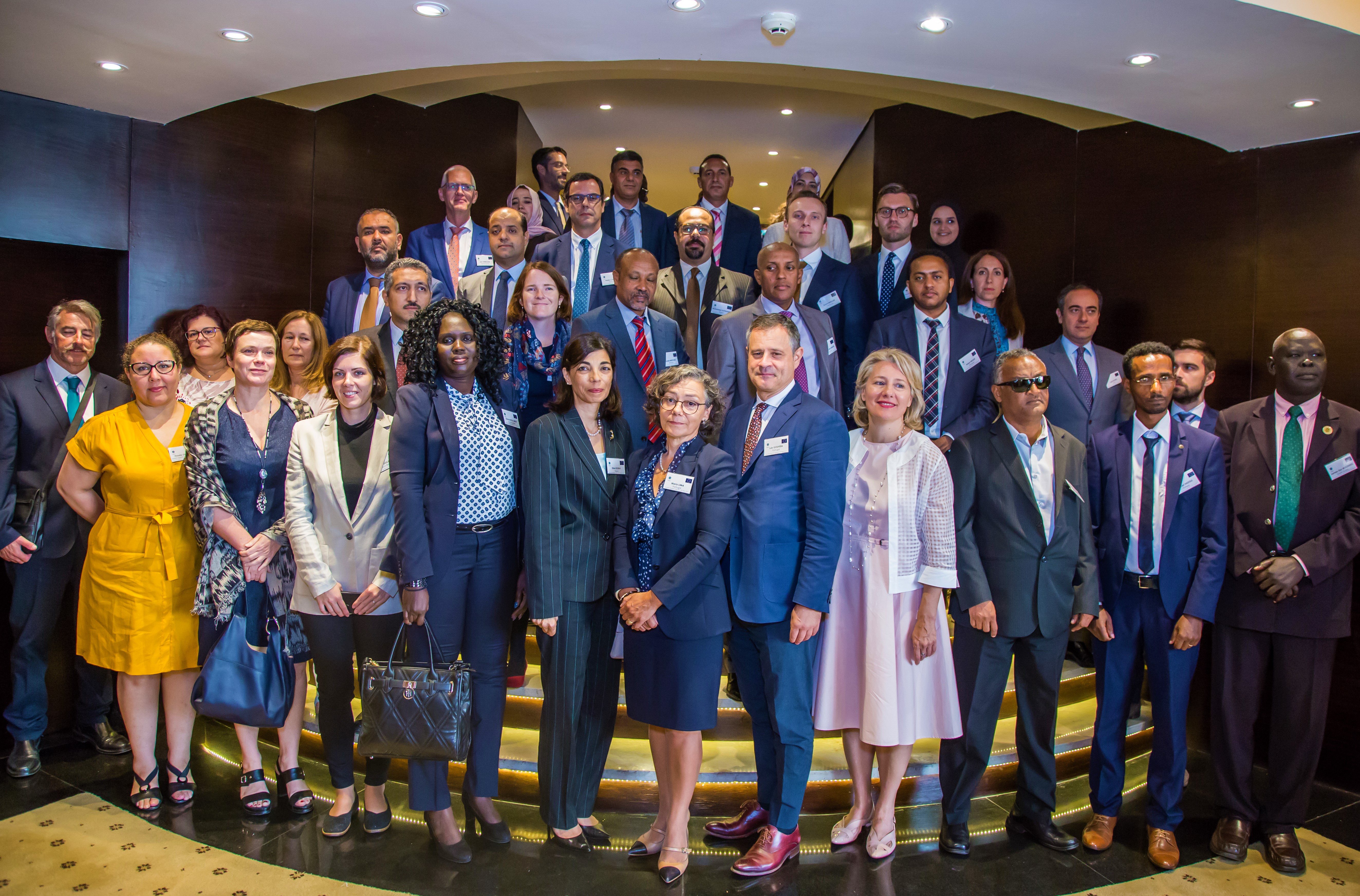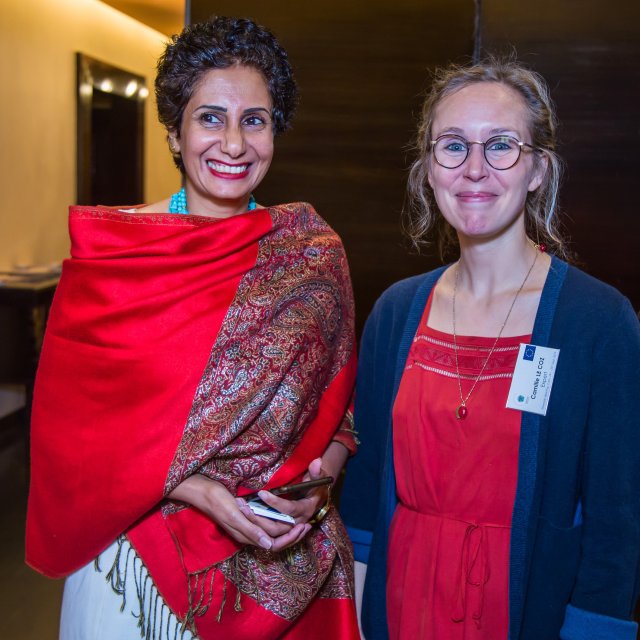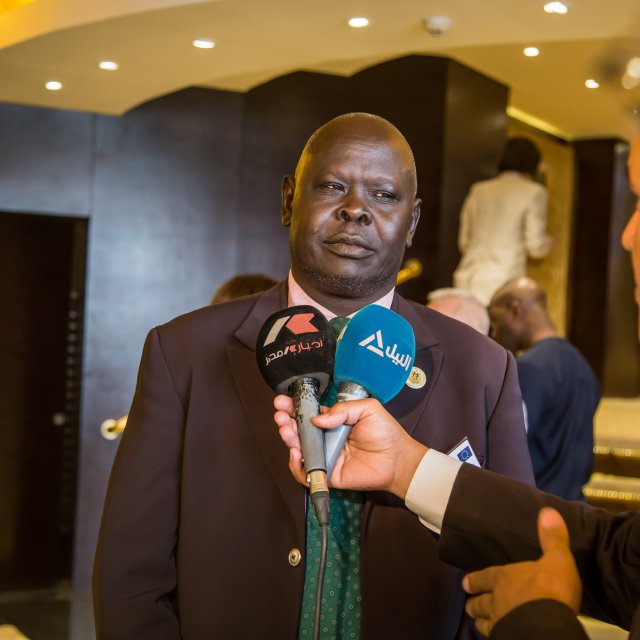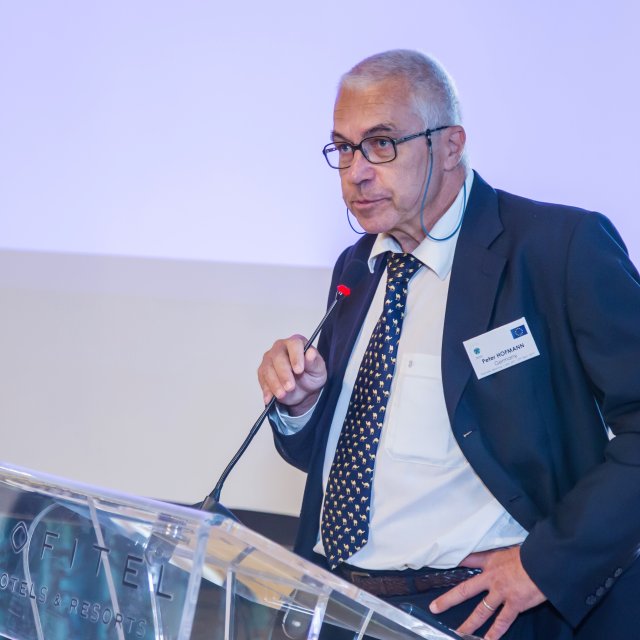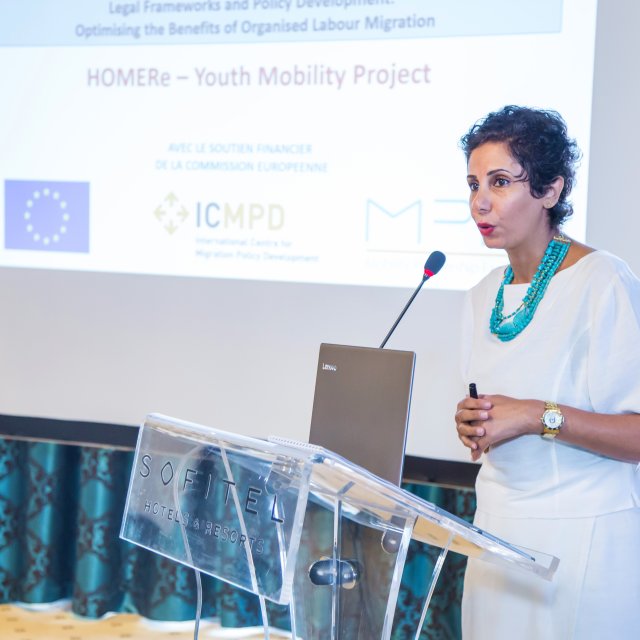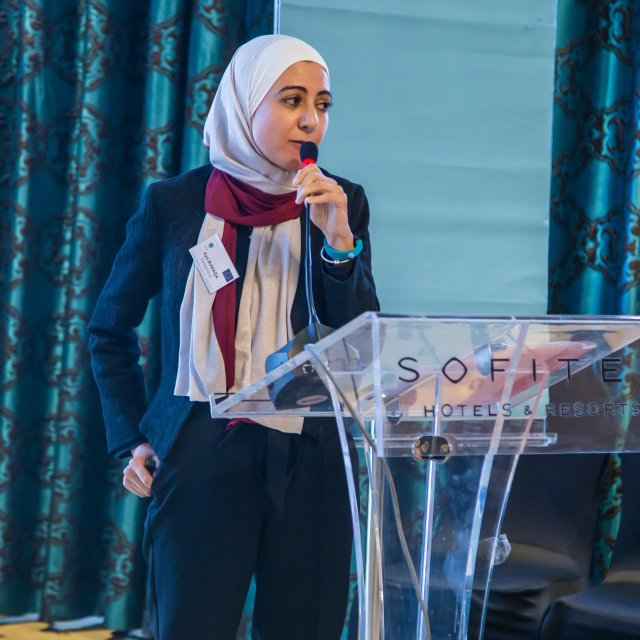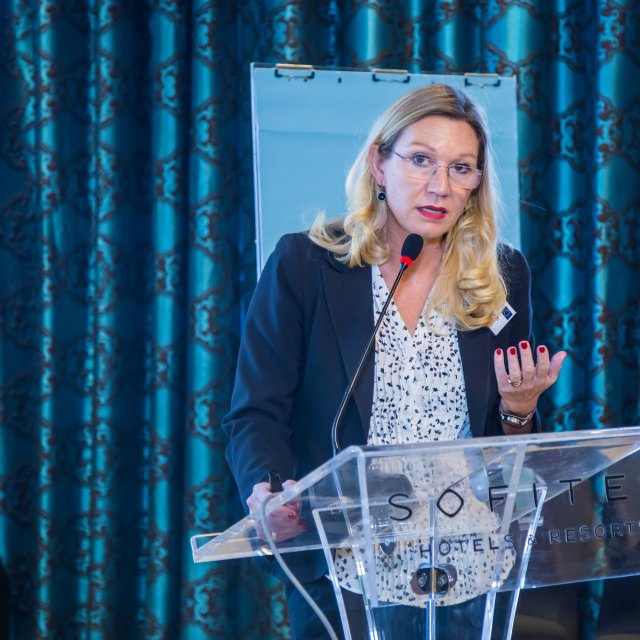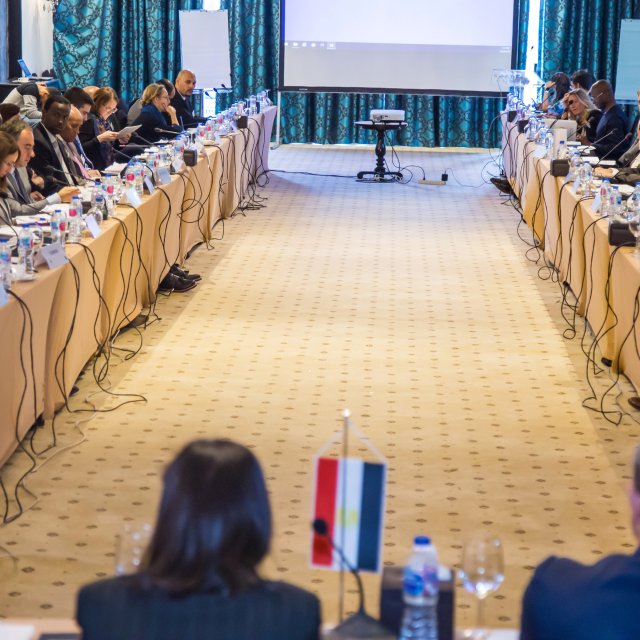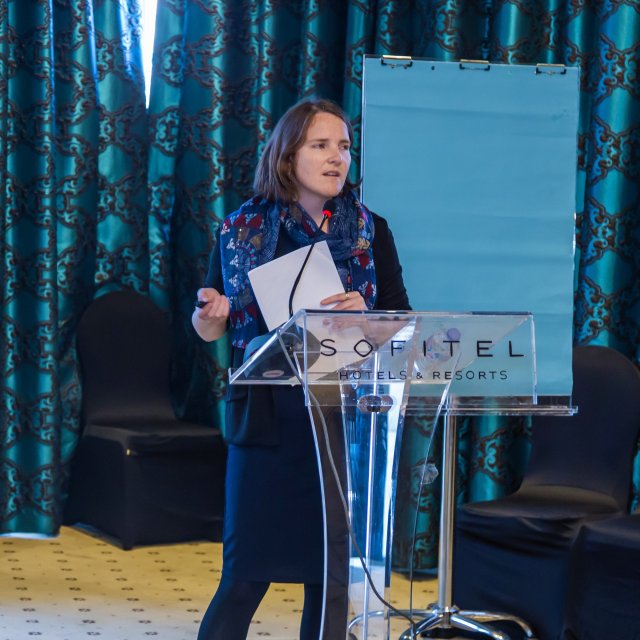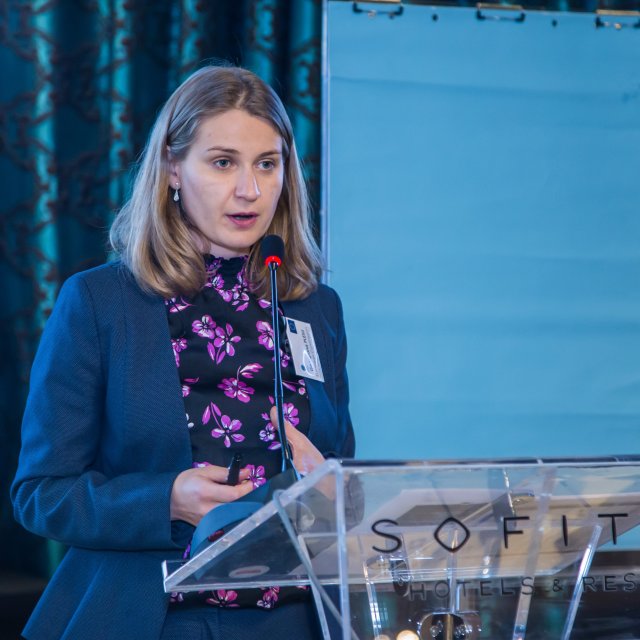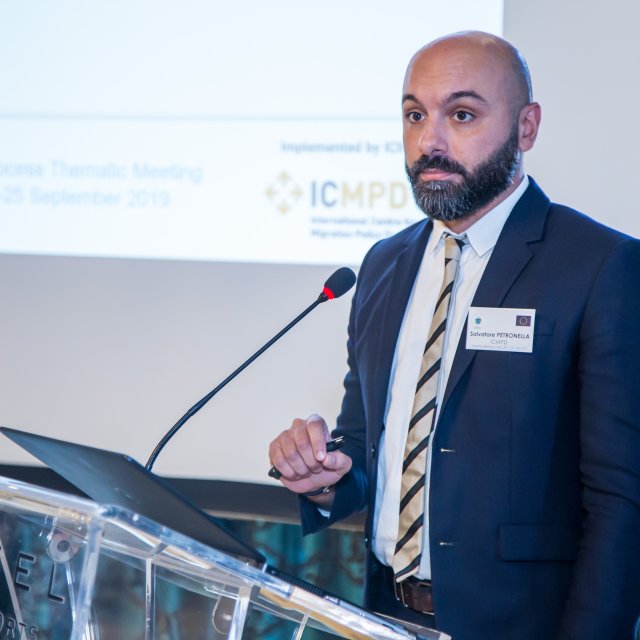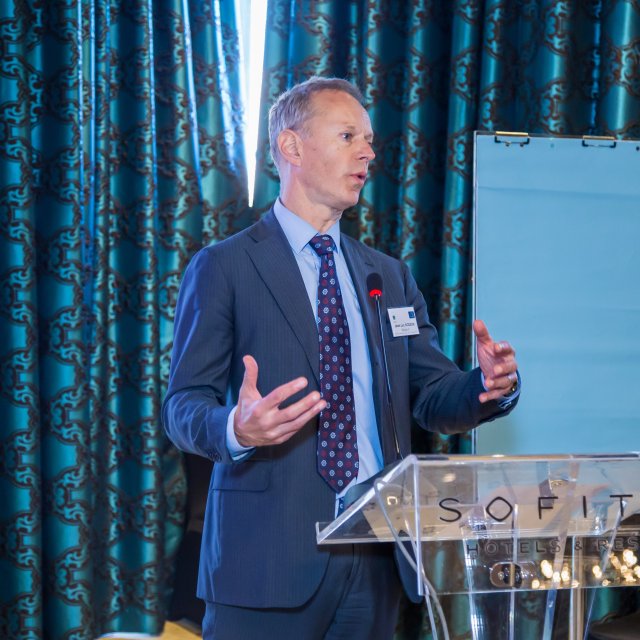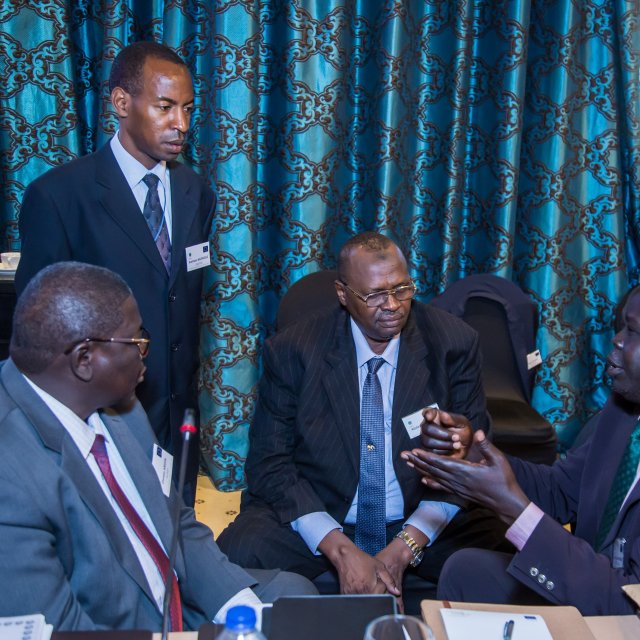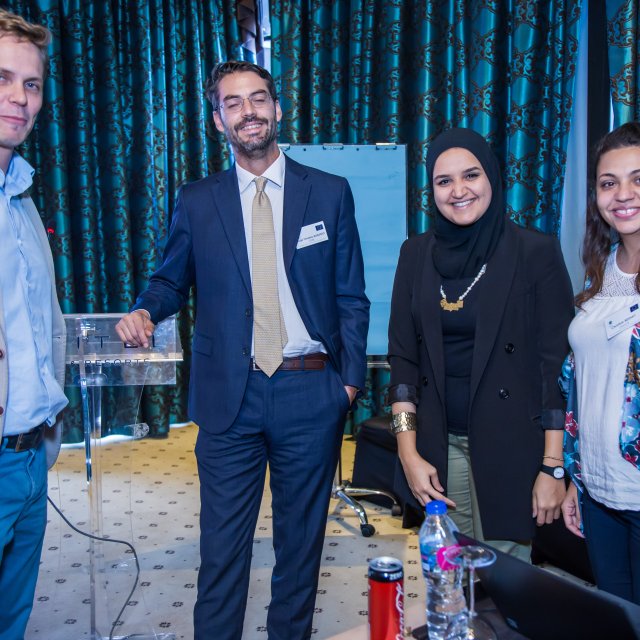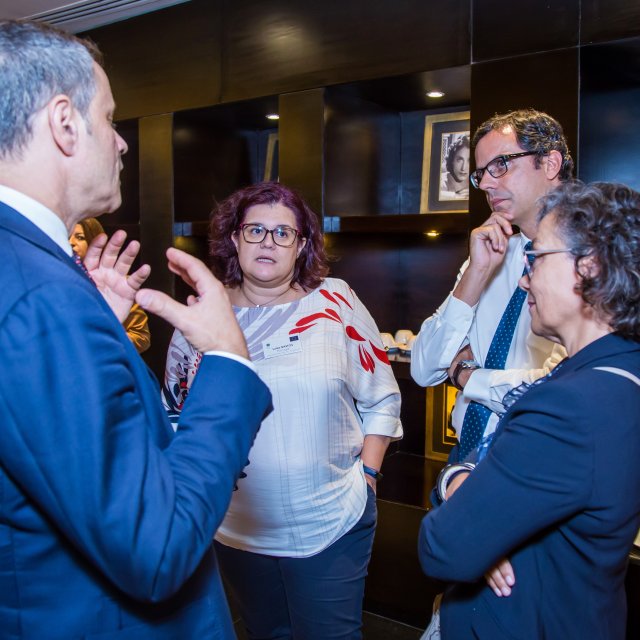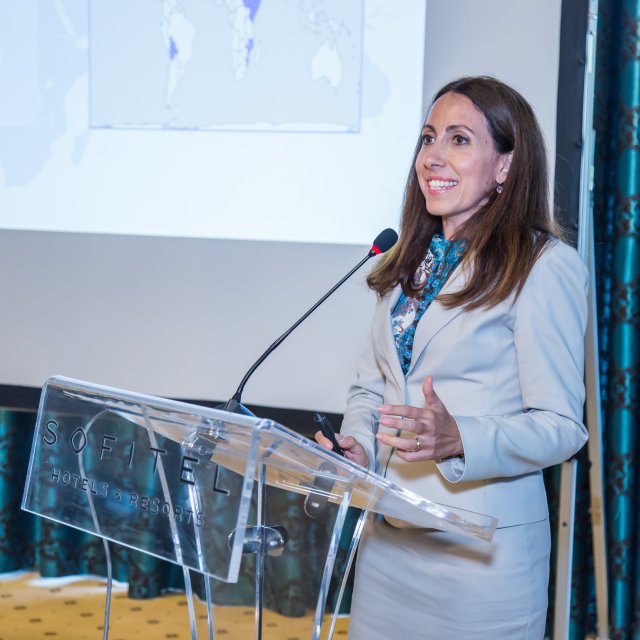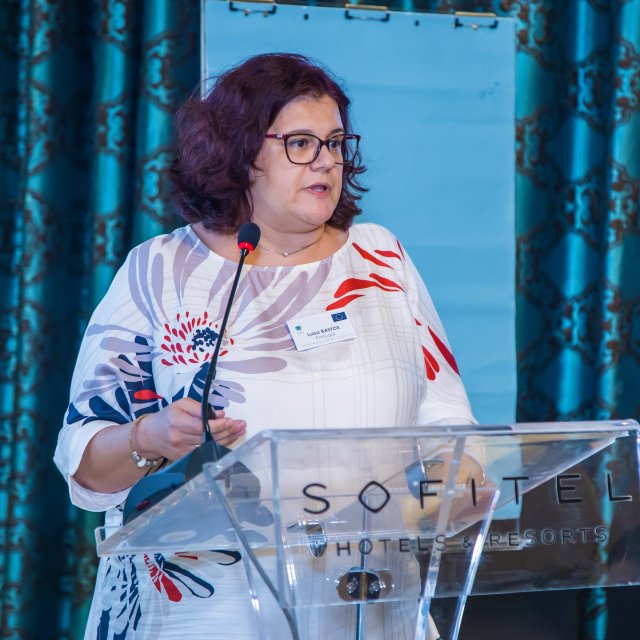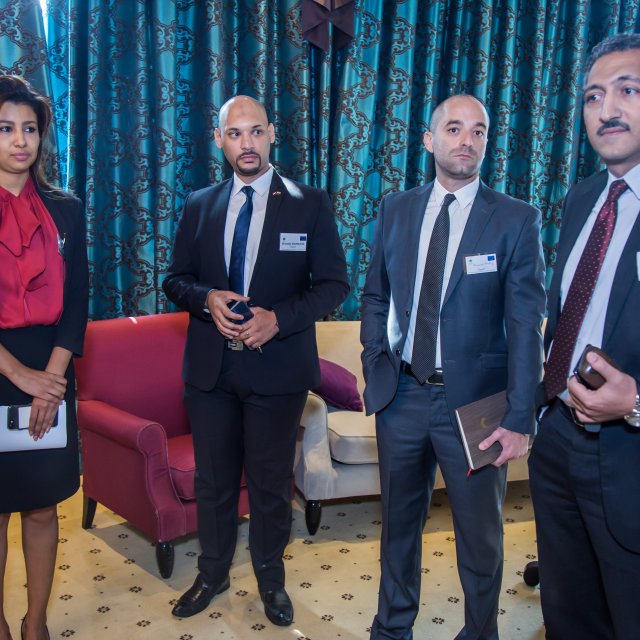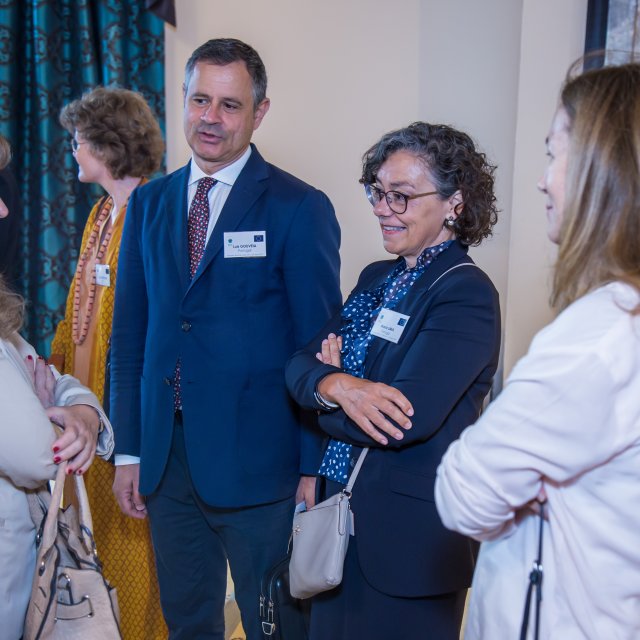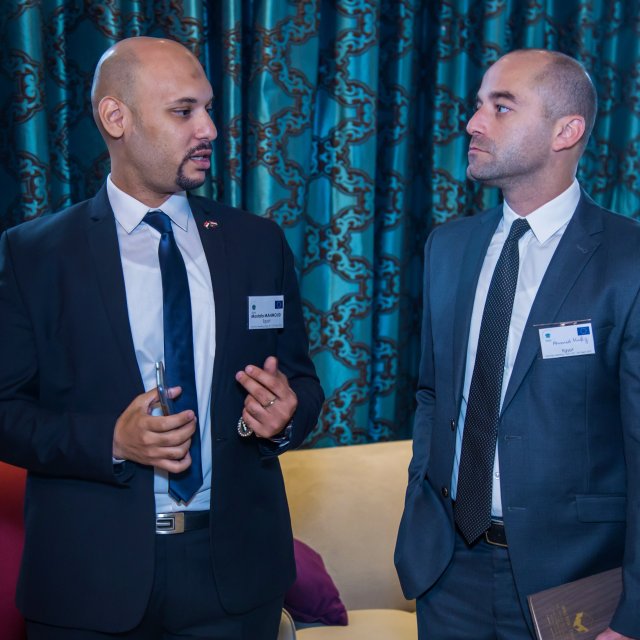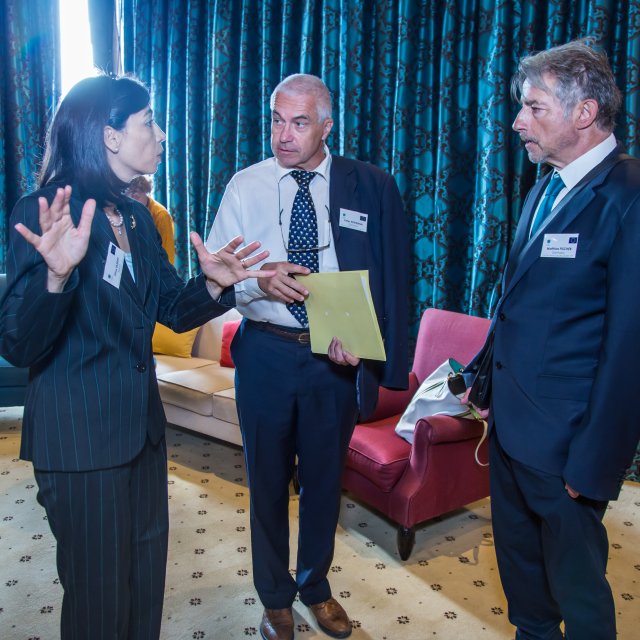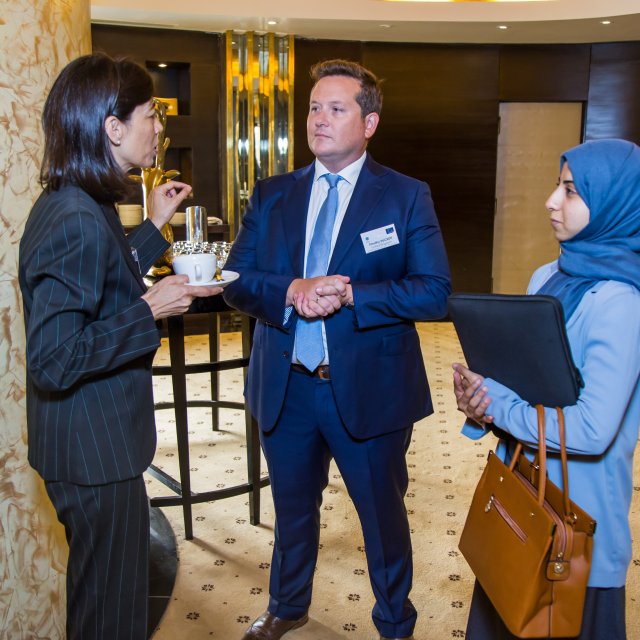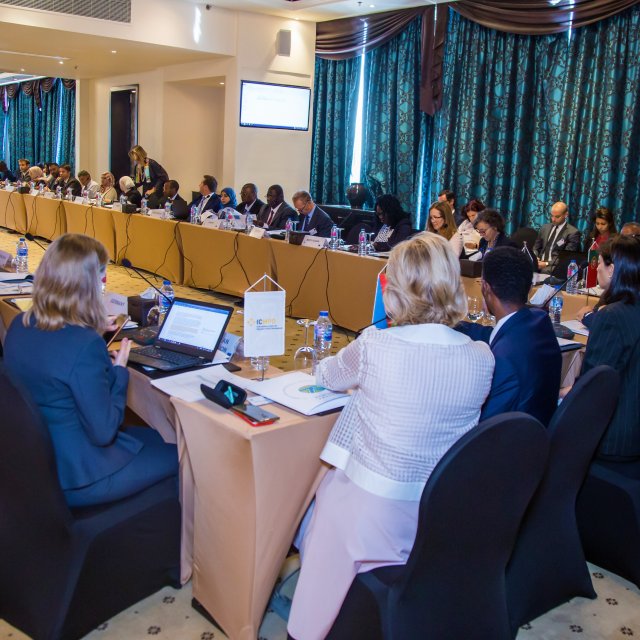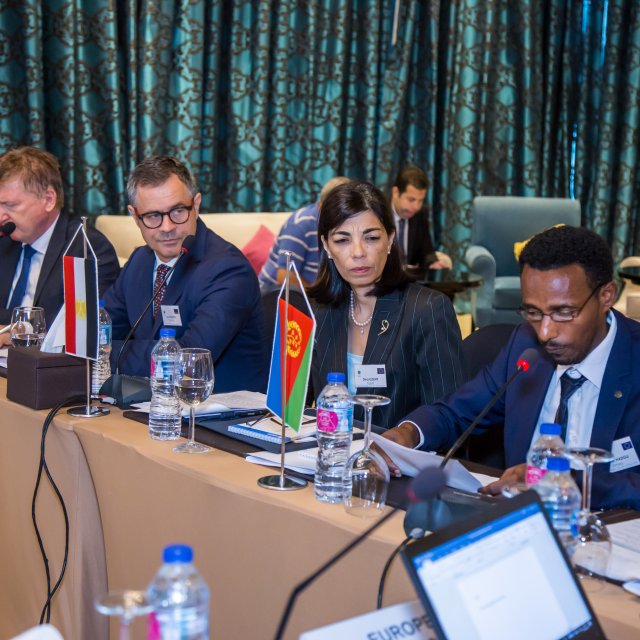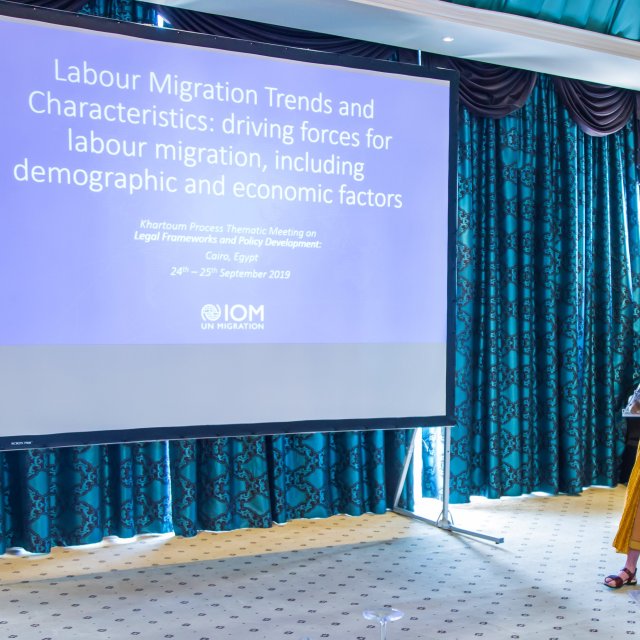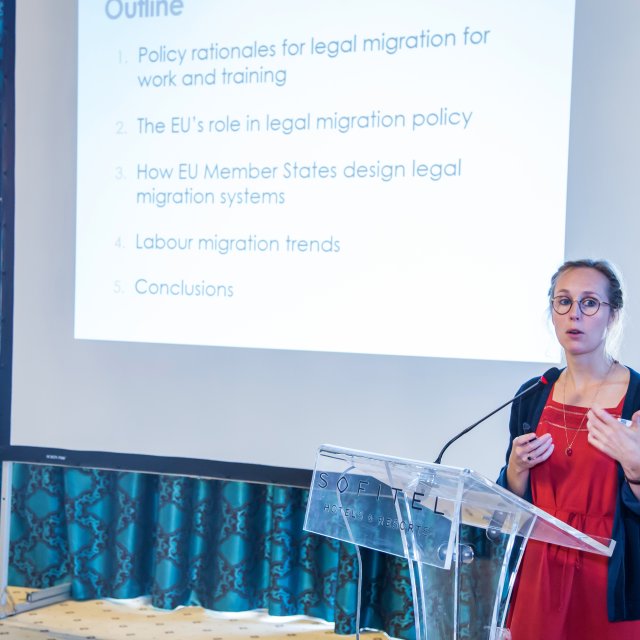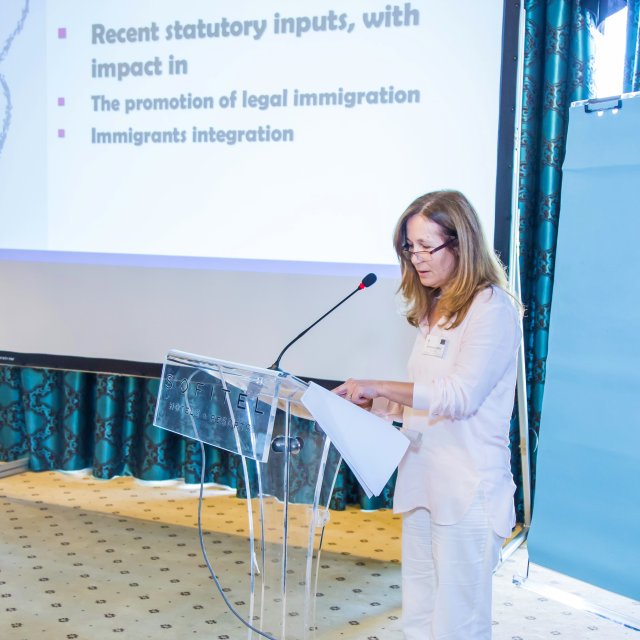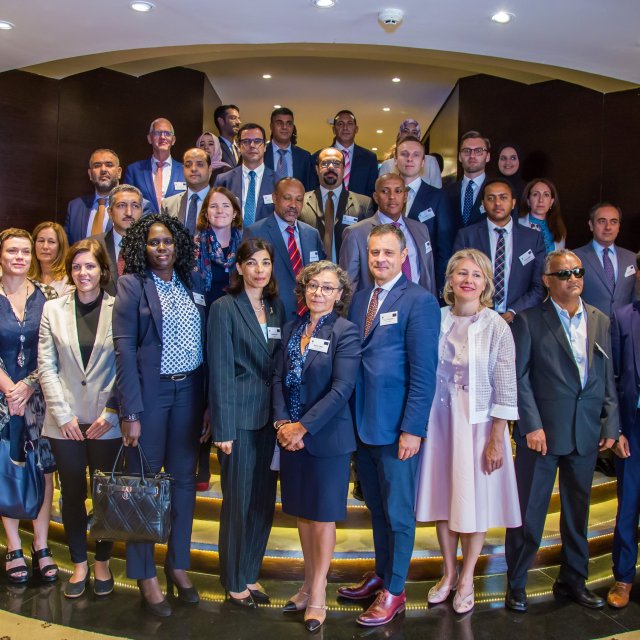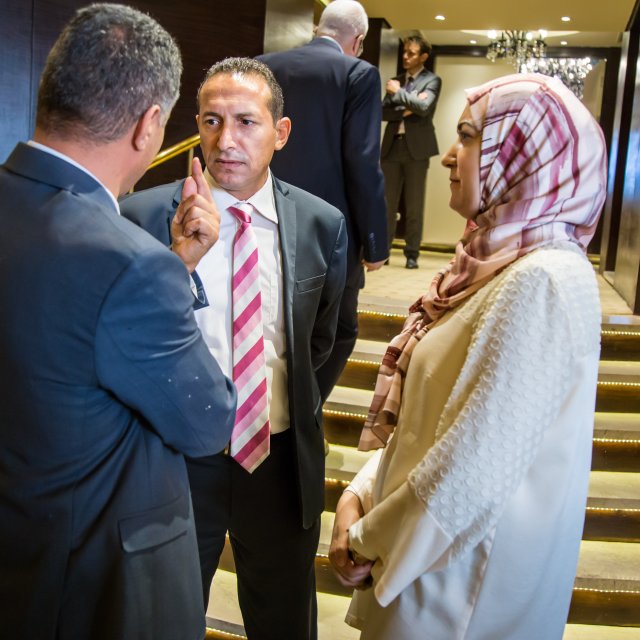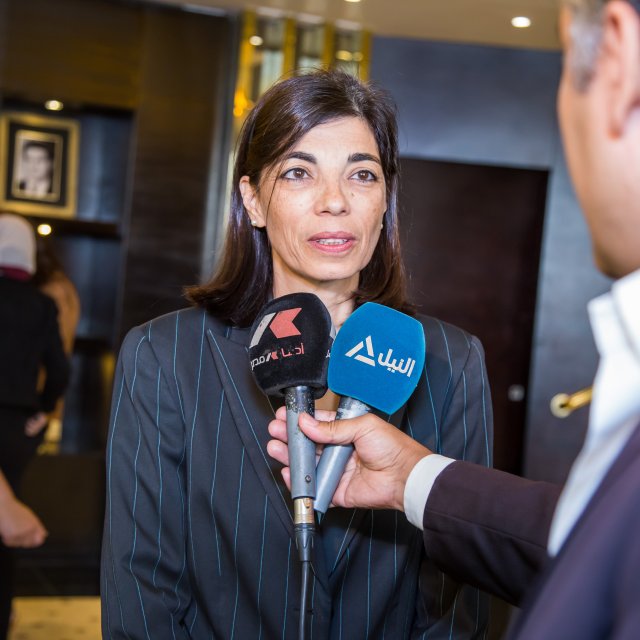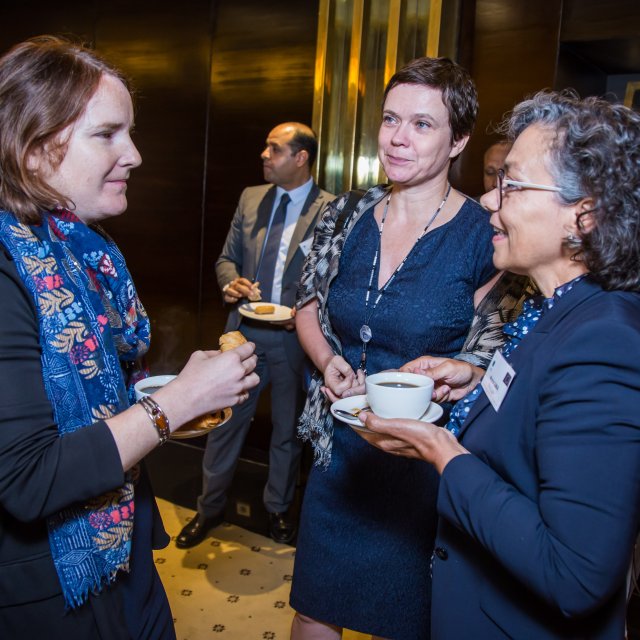On the 24th-25th of September 2019, Egypt, together with Portugal as co-chair, hosted the Khartoum Process Thematic Meeting on Legal Frameworks and Policy Development: Optimising the Benefits of Organised Labour Migration.
This meeting was organised in response to the expressed interest of the Khartoum Process membership to address the Joint Valletta Action Plan (JVAP) in its entirety, alongside the priorities charted in the Rome Declaration, with the corresponding focus on addressing the challenges of trafficking of human beings and smuggling of migrants.
As underlined in the Analysis Report of Khartoum Process prepared for the JVAP Senior Officials’ Meeting in Malta in February 2017, legal migration should be further strengthened by encouraging policies that promote regular channels for migration, whilst recognising that progress has been made in respect to specific references to increased opportunities for students and researchers.
Against this backdrop, this first Thematic Meeting on legal migration organised within the framework of the Khartoum Process was designed to take stock of the existing legal and policy instruments regulating labour migration in the region and to facilitate knowledge sharing amongst the partners. Additionally, it aimed to explore the operational side of the policies in place, to provide updates related to the existing legal frameworks, and contribute to a shared understanding of the related challenges and good practices amongst the participating states and organisations.
Considering the diversity and the scale of migration flows occurring between the Horn of Africa and Europe, the Thematic Meeting started with an insight on the labour migration reality in the region, current trends, driving forces and actors involved.
With the aim of providing a picture of the legal frameworks regulating such flows at the regional level, the Thematic Meeting featured an overview of the existing labour agreements both at bilateral and multilateral level. The analysis focused on treaties and soft law instruments as well as on their implementation to assess major achievements and gaps.
The second day of the Meeting was dedicated to the protection of migrant workers’ rights, experts’ presentations examining the potential of the inter-state cooperation in fostering practices to protect migrants and address the challenges and opportunities of migration.
Additionally, the operational side of the policy and legal arrangements with the purpose of identifying effective strategies for their implementation was explored.
The meeting gathered over 80 delegates from Khartoum Process countries, the European Commission, and IGAD, organisations such as ICMPD, IOM, ILO, GIZ, UNHCR, and UNODC, as well as Migration Policy Institute Europe and The-Marketer.net.
